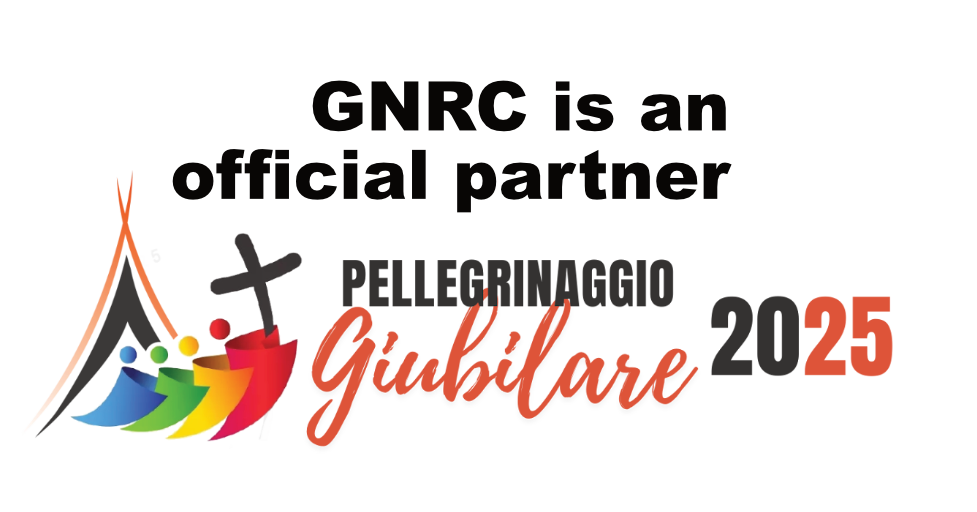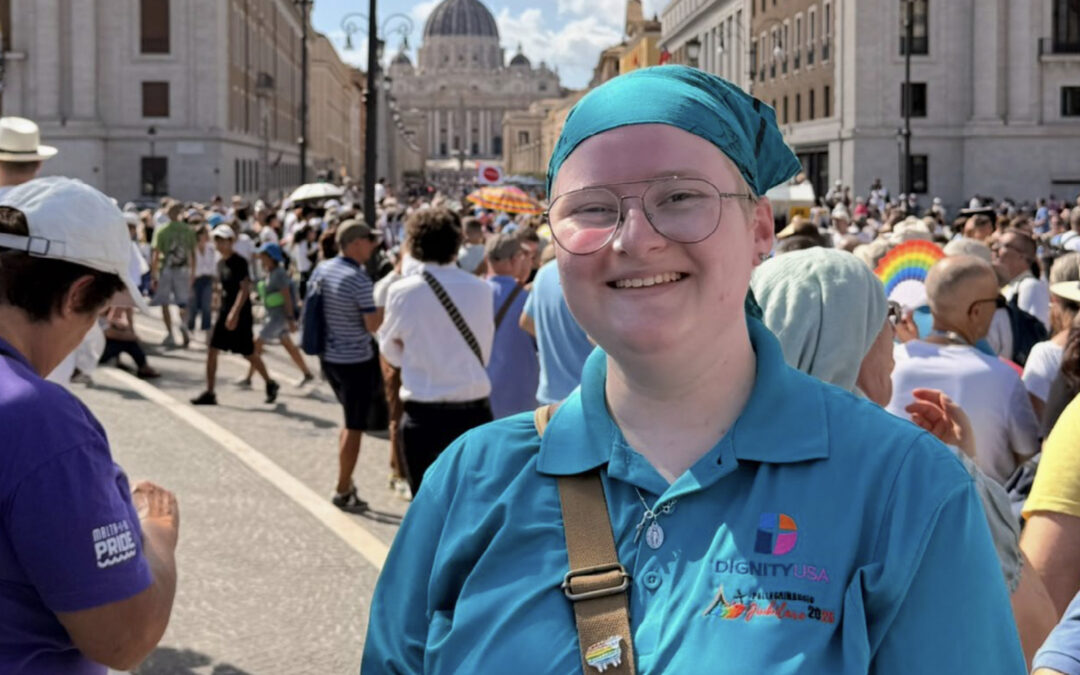Libby Kercher shares her emotions and reflections after taking part in the LGBT+ pilgrimage “Pellegrinaggio de La Tenda di Gionata e altre associazioni”, held in Rome as the first officially authorised pilgrimage for LGBT+ individuals. The event brought together groups and communities from many parts of the world. GNRC was proud to stand as the only official supporter of the leading organiser, La Tenda di Gionata, and we are grateful to share this testimony from our member group, DignityUSA.
—
Just over one year ago, I attended my first Dignity Mass. I walked around the block a few times, almost threw up from nervousness, then took some deep breaths and stepped inside.
I don’t think I would have believed you if you told me that the same person, one year later, would be walking through the doors of Saint Peter’s Cathedral in Rome. When God places before you a door and gives you the conviction to walk through its threshold, it is a blessing and a gift—despite the fear and anxiety that cloud the way.
On Ash Wednesday of last year, I called DignityUSA—really Marianne Duddy-Burke—and asked if they had any need for a graphic design or illustration intern. To my surprise, they did, and thus began the most profound summer of my life.
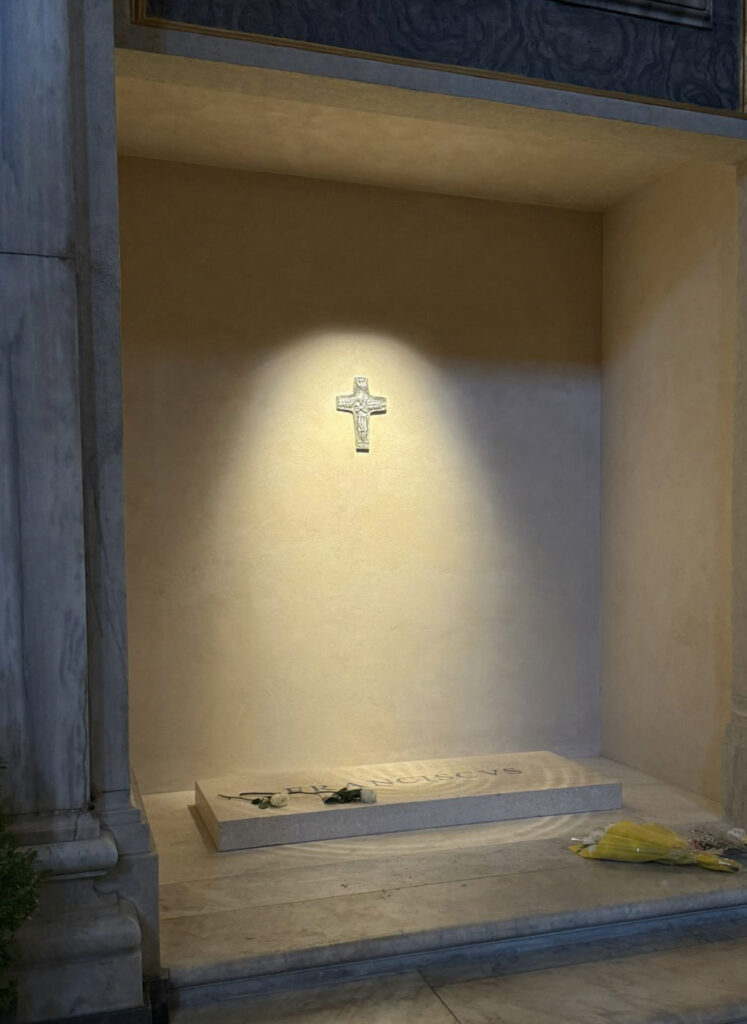 When there was an open invitation to join the DignityUSA contingent for the LGBTQ pilgrimage to Rome, I said yes first and panicked later. It felt almost absurd that I had gone from a casual attendee of Dignity Philadelphia to a design intern, and then to the Vatican, all within a year.
When there was an open invitation to join the DignityUSA contingent for the LGBTQ pilgrimage to Rome, I said yes first and panicked later. It felt almost absurd that I had gone from a casual attendee of Dignity Philadelphia to a design intern, and then to the Vatican, all within a year.
Would I even belong among participants whose lives and activism seemed far bigger than mine? As the youngest member of the group, I carried a heavy sense of imposter syndrome, wondering if my presence was somehow less earned or meaningful.
Very quickly, I realized how much I had to learn from those around me—those within Dignity and those who had come from around the world, each at different stages of their lives and journeys of faith.
The older participants shared stories that spanned decades, sometimes lifetimes—decades of waiting, advocacy, heartache, and resilience. Each conversation felt like a small tile in a mosaic being set into the ceiling of a vast cathedral.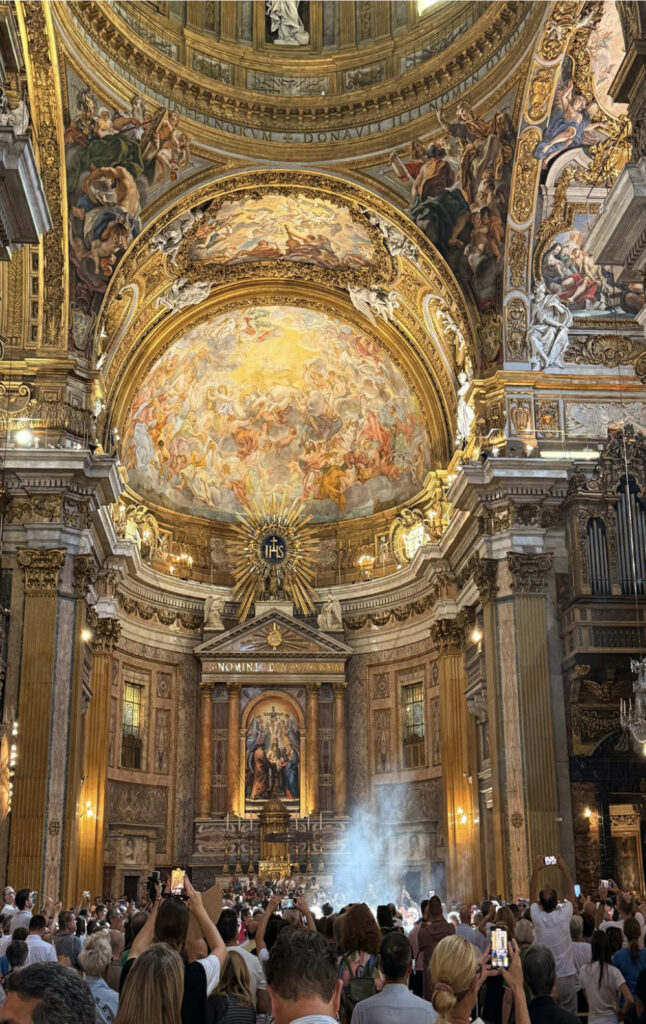
I listened to memories of being physically barred from Mass and the sacraments, of being silenced, and of moments when visibility itself seemed impossible. I also learned about the painful experience twenty-five years ago when organizers from Dignity and New Ways Ministry tried to hold a similar pilgrimage in the year 2000.
For many, this new pilgrimage was the culmination of a lifetime of faith and courage. Their stories made the gravity of our moment in Rome hit home. This was bigger than my fear.
What left the deepest impact was the atmosphere we encountered in Rome itself. Contrary to my anxious expectation that we would be met with hostility, there was not a single hateful interaction. Instead, we met curiosity, genuine warmth, and open-hearted connection from nearly everyone we spoke with along the way.
Moments of solidarity came often. A Vatican usher told us about his gay son and his husband living in Los Angeles. A nun embraced me, handed me a piece of candy, and whispered that she was proud of me after I cried at the tomb of Pope Francis.
As the pilgrimage drew to a close, I became more aware of my own place within this moment and this movement. While some participants saw it as a long-awaited arrival point, I felt the weight of what still remains unfinished—especially for our transgender, nonbinary, and intersex siblings. The Church’s path toward inclusion is far from complete.
I couldn’t shake the feeling that my generation, and those that will follow, must ensure that this pilgrimage is not a one-time event but the beginning of ongoing change. In twenty-five years, when I am forty-six, I want to return to Rome for the second LGBTQ Jubilee Pilgrimage.
Standing in the Church of the Jesuits, in the center of Rome—praying, singing, and crying together openly as LGBTQ people—I felt a spark of possibility.
I can say with clarity and conviction that I felt the presence of the Holy Spirit within and among us when we gathered. Christ was there with us in the Eucharist. God holds a special love and care for the oppressed and the marginalized.
In that moment, I understood that this journey is not only about seeking acceptance, but about calling forth a Church more loving than it dares to be right now—and trusting that Christ will walk with us through those doors.
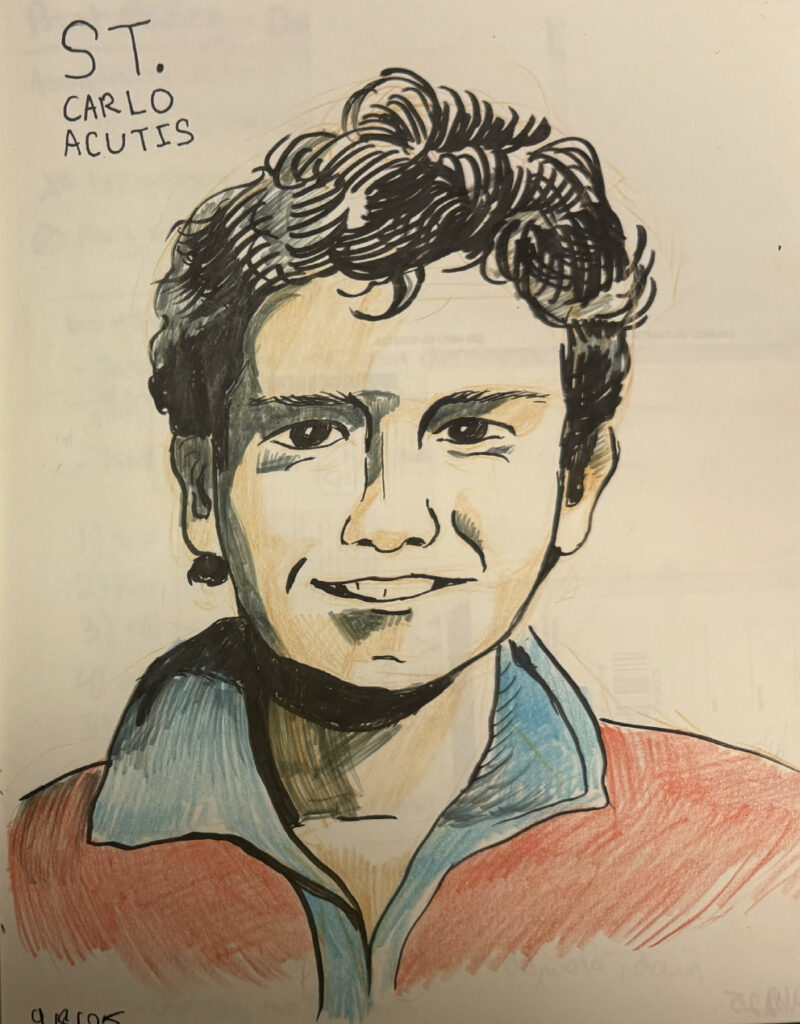
Here is a sketch of newly Canonized Saint Carlo Acutis that I drew on
the plane, flying over Greenland

